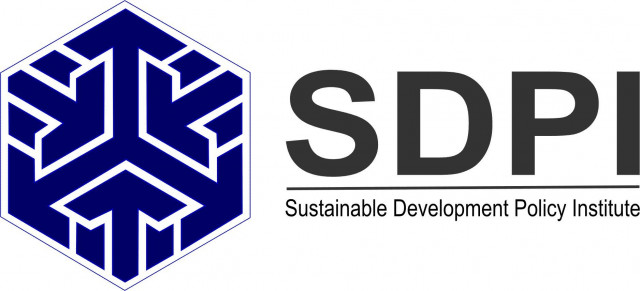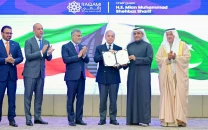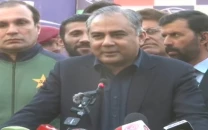‘Non-traditional challenges hinder development’
Focusing on energy, environment challenges to boost national security paradigm

The Sustainable Development Policy Institute (SDPI) organized a webinar the other day wherein speakers urged upon the need to give equal importance to the country's non-traditional security challenges such as energy and environment crises.
They were of the view that traditional security challenges were already being tackled by the security apparatus and by focusing on non-traditional challenges, we may boost our overall national security paradigm.
United Nations Environmental Programme former executive director and SDPI Board of Governors Chairperson Shafqat Kakakhel stated that the nexus among climate change, energy and security is very well established.
Read: Pakistan to roll out adaptation plan for climate change
He said the non-traditional challenges may troll the development process. The industrial revolution resulted in energy conquering difficult life conditions in Europe and North America where winters were seen as a punishment and also helped improve health conditions, he maintained.
“Initially, there was a sense of triumph and everyday efforts were made to create more sources of energy but then somewhere in the 1980s, climatologists realised that there were changes in the climate pattern (global warming) induced by humans and use of fossil fuels,” he added.
The chairperson highlighted the efforts of scientist and different meteorological organisations that led to a political consensus on the need for actions and cooperation to handle climate change as a new threat to the international community.
He said the non-traditional security threat in terms of climate change could be countered if we go for renewable and clean energy, which would also address the energy shortage in Pakistan.
Kakakhel said that the government’s efforts over past several decades, particularly the clean energy and renewable energy policy of 2006 and more recently the new energy policy would change the entire system of how energy projects are agreed upon, decided and financed.
Environment and Climate Change Director General Muhammad Irfan Tariq mentioned that the nontraditional security threats were were neglected or not seen through policy lenses. "We see the threats being imposed by climate change and environment very clearly,” he said, adding, “I hope everyone can understand the linkage between development and nature.”
He said that Covid-19, dengue and glacial lake outburst flood proved that we have disrupted nature. “We face a very serious threat because the sources we use highly impact climate change and when we talk about hydro, it not only threatens our energy security but also poses serious threat to water and food security,” he stated.
Energy expert and World Bank Consultant Ermeena Malik discussed the general framework adopted throughout the world to measure the modern energy system. "The three main factors of the matrix are availability of energy, affordability of energy and sustainability of energy," she told.
Read more: ‘Conversations on climate change cannot ignore colonial pasts’
She said that all energy projects and assessments were basically based on these matrixes and they play a fundamental role in energy supply systems in countries across the world.
Anything impacting these three components compromises the country's energy security and if we look at each individual element, they have very close linkages, she added.
Ermeena said it is not sufficient that you have enough energy or that you are able to supply it at suitable cost, but that it must be sustainable and from resources that are renewable in the long-term. It is important to work on the transmission grid, transmission infrastructure, and increasing transmission capacity, she added.



















COMMENTS
Comments are moderated and generally will be posted if they are on-topic and not abusive.
For more information, please see our Comments FAQ